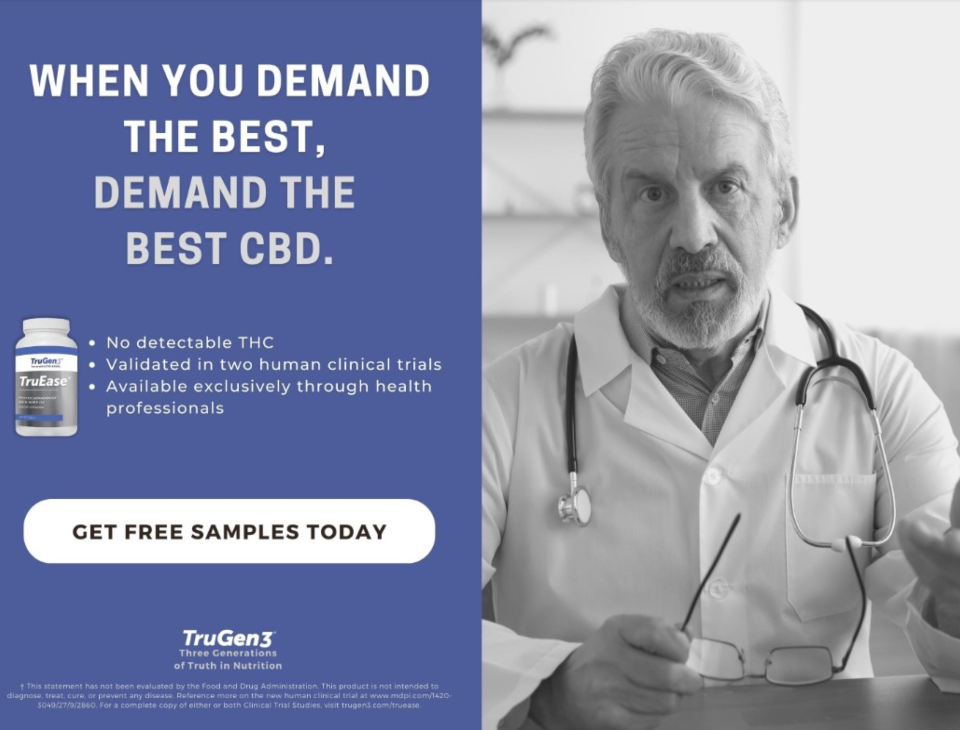Jule Klotter
Early treatment is one of the “four pillars” of any pandemic response, Peter McCullough, MD, MPH explained during the November 19, 2020, US Senate hearing on Covid outpatient treatment.1 Early outpatient treatment is key for preventing hospitalizations and deaths. While government agencies and media focused on the other three “pillars” during the Covid-19 pandemic—contagion control, hospitalization, and vaccination—early treatment was ignored. Government agencies offered NO guidance to doctors or patients. Instead, patients were simply told to stay home. If they developed problems breathing, they were supposed to go to the hospital. Without early treatment, the possibility that hospitals would be overwhelmed was very real.
For clinicians like Peter McCullough and others around the world, that advice wasn’t good enough. They began digging into the medical literature for antivirals and other treatments that showed effectiveness against SARS-CoV-1, the respiratory virus responsible for a 2003 pandemic. As John Leake explains in the book he co-wrote with Dr. McCullough, The Courage to Face Covid-19, SARS-CoV-2 was “closely related to SARS-CoV-1…”(p7).2
Chloroquine/Hydroxychloroquine was one of the drugs with antiviral and anti-inflammatory effects shown to be useful in combatting SARS-CoV-1. Hydroxychloroquine, which is less toxic, gained FDA approval in 1955 for malaria prophylaxis and is also used to treat lupus, rheumatoid arthritis, and Lyme disease. Because it has been on the market for so long, its contraindications and dosage range are well known.
Early in the Covid-19 pandemic, Chinese research teams were reporting that hydroxychloroquine reduced disease severity, accelerated viral clearance, and that it had prophylaxis effects against SARS-CoV-2. Other clinician-researchers decided to investigate for themselves. French clinician-researcher Professor Dider Raoult, who is also a microbiologist, began using hydroxychloroquine and azithromycin (for its anti-viral effect and to prevent secondary bacterial infections) to treat patients, beginning in March 2020.
Dr. Vladimir “Zev” Zelenko, a family doctor in Monroe, New York, added zinc to Raoult’s combination after learning that zinc impairs RNA viral replication. He observed quick responses to the therapy in his high-risk patients (50 years or older and/or with co-morbidities) when the treatment was given early.
George Fareed, MD, and Brian Tyson, MD, used Zelenko’s treatment to successfully treat thousands of patients in El Centro, California, which has a large Mexican migrant population; “they got the word out that they would treat anyone who came, and they emphasized ‘the earlier the better’” (p.121). And the early treatment let people recover quickly and kept them out of the hospital—when they could find pharmacists willing to provide the drugs. Following the lead of FDA, NIH, and CDC, pharmacists often refused to provide hydroxychloroquine or ivermectin to patients with covid. Fareed and Tyson recount their experiences in their January 2022 book, Overcoming the Covid Darkness: How Two Doctors Successfully Treated 7000 Covid Patients.
On August 8, 2020, while government agencies and media were telling people to wait for the vaccine that was in development, American Journal of Medicine published a peer-reviewed paper online by Peter McCullough and 22 co-authors, including Harvey Risch, MD, PhD, Professor Emeritus of Epidemiology at Yale: “Pathophysiological Basis and Rationale for Early Outpatient Treatment of SARS-CoV-2 (COVID-19) Infection,” American Journal of Medicine. 2021 Jan;134(1):16-22. Yet, government agencies, mainstream media, and hospital systems continued to ignore early treatment options.
No, it was more than that. There was an active campaign to suppress early treatment with inexpensive, repurposed drugs—led by federal agencies, including FDA, NIH, and CDC. Doctors who promoted early treatment options like hydroxychloroquine and, later, ivermectin were censored from social media outlets that succumbed to federal pressure.3 Colleagues harassed and disparaged them for not following government guidelines. Their hospital privileges were revoked. They were fired from their jobs. Medical boards threatened their licenses. And ad hominem attacks destroyed their reputations.
Unfortunately, the bastions of medical research were part of the campaign, as Pierre Kory, MD, explains in his book The War on Ivermectin.4 A pulmonary and critical care specialist, Kory co-founded Front Line COVID-19 Critical Care Alliance (FLCCC). Before covid, he “believed that the elite, esteemed medical journals represented the best of scientific thought and study….trusted the government…and actually believed that public health agencies were committed to safeguarding and improving…public health….” His experiences over the past three years changed that.
In the course of researching early covid treatments, such as ivermectin, and trying to gain acceptance for them, Kory realized that Big Pharma, the medical-industrial complex, the World Health Organization, NGOs like Unitaid and the Bill and Melinda Gates Foundation (BMGF), and medical journals were using the same tactics that the tobacco industry and Monsanto had used to protect themselves and keep selling their products.
One such tactic is “the fake”(studies with flawed methodologies biased toward predetermined results). From the beginning of the pandemic, case studies and clinical trials that showed benefits from early treatment with repurposed drugs—real-world data from frontline doctors—were dismissed. Only large, randomized controlled trials (RTCs) were to be believed. But, in the case of ivermectin, large RCTs were designed to show no effect.
Kory points to six major ivermectin trials, published in high-impact medical journals, that showed ivermectin was not useful in preventing or treating covid. All six of the major ivermectin studies were designed and conducted by trialists with financial conflicts-of interest.
- Most studies were conducted in South America where ivermectin is sold over the counter, making it very difficult to ensure that the placebo-control groups were not taking the drug.
- The studies also enrolled only mildly ill, young, healthy people—not high-risk—and measured differences in hospitalization. Kory wrote, “Shocker: so few went to the hospital that it underpowered the trial….” (p.157)
- The dosages used in these trials were either too low to be effective and/or trialists told participants to take it on an empty stomach—“despite knowing full well that concentrations are higher with a meal and that higher concentrations lead to more potent efficacy.” (p.157)
- Patients were enrolled up to 14 days after disease onset. (A Paxlovid trial [ivermectin’s more expensive competition] managed to treat all participants within three days. [p.158])
- Several of the trials changed methodology (eg, dosage, randomization, data analysis) during the trial.
- Researchers refused to share patient or source data after publication, preventing other researchers from evaluating the results/conclusions.
Not surprisingly, these six flawed trials found that ivermectin is not better than placebo. Yet, because they were published in high-profile journals, these studies immediately made headlines, “confirming” that ivermectin had no effect. (For those interested in more information on repurposed drugs to treat covid, check out https://c19early.org/.)
When ivermectin researchers, like Kory, pointed out the flaws in these trials, the journals refused to retract the studies. (p.163) Meanwhile, studies without these flaws that show the positive effects of repurposed drugs are “slow-walked” (held by journal editors for months, preventing submission to other journals) or retracted without due process (i.e., allow the authors to respond to criticisms or make revisions) —even after undergoing full peer review. Moreover, several journals have simply refused to peer review “any submissions of study manuscripts with inconvenient results for Pharma.” (p. 178)
Instead of using real-world observation and unbiased investigation to make public health decisions that affect billions of people, we relied on authorities aligned with pharmaceutical interests. Dr. Kory wrote:
If anyone reading this has even a shred of doubt that ivermectin is effective in the prevention and treatment of Covid, ask yourself why such covert and duplicitous effort was put into distorting the drug’s evidence base of efficacy. If it didn’t work, none of these actions would have been necessary. None. Because if it didn’t work, doctors like me would not have used it nor would we still be using it. Every one of us would have known within our first dozen or so patients if it was doing nothing and moved on. (p.143)
During covid, many doctors chose to find ways to keep patients out of the hospital. They did not follow authoritarian diktats that went against everything they knew about public health and caring for patients. In the process, these doctors discovered a terrible web of corruption and conflicts of interest. And they lost jobs, reputations, and, even, the license to practice medicine.
Will we have learned from this experience? Or will the next pandemic, which is sure to come, be a repeat of authoritarian edicts that help the pharmaceutical industry rake in billions?
In This Issue
In this issue, we have a notice announcing the second edition of Ross Pelton’s book, Rapamycin, mTOR, Autophagy & Treating mTOR Syndrome (first published in May 2022). Ross Pelton, RPh, PhD, CCN, the “Natural Pharmacist,” is a researcher, pharmacist, and certified clinical nutritionist as well as a health educator. Why am I giving special attention to a book notice when this issue also has several fine articles with detailed treatments for cardiovascular disease, Lyme, and more? Because the story of rapamycin is cutting edge and a fine example of what Benton Bramwell, ND, and Matt Warnock have been writing about in their series of articles: dose makes a difference.
Rapamycin, derived from a bacterium found on Easter Island (Streptomyces hygroscopicus), is an FDA-approved immunosuppressant drug used to prevent organ transplant rejection. But, when taken once a week instead of daily, laboratory and a few clinical studies indicate that this compound, delays age-related degeneration and extends both lifespan and healthspan. In his Townsend Letter article, first published in May 2022, Ross Pelton explains that rapamycin binds with mTOR, which is a key regulator of cellular metabolism. Since that article, published a little over a year ago, more information has come to light; his new edition “contains 40% new information and documentation on the science of rapamycin.” Take a look.
References
- McCullough Testimony begins at 15:00 minutes. Senate Hearing on COVID Outpatient Treatment. November 19, 2020. https://www.c-span.org/video/?478159-1/senate-hearing-covid-19-outpatient-treatment&vod
- Leake J, McCullough, PA. The Courage to Face Covid-19. Counterplay Books (Dallas, TX); 2022.
- State of Missouri et v. Joseph R.Biden, Jr. et al. Memorandum Ruling on Request for Preliminary Injunction. Pages 52-57. https://ago.mo.gov/docs/default-source/press-releases/missouri-v-biden-ruling.pdf
- Kory P with Jenna McCarthy. The War on Ivermectin. Skyhorse Publishing; 2023.
Published August 12, 2023

